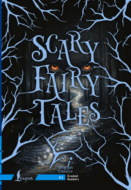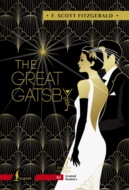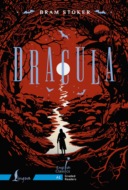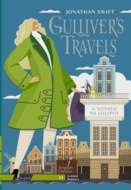Read the book: «The Adventures of Sherlock Holmes. B1 / Приключения Шерлока Холмса»
© Самошина А.А., адаптация текста, словарь, упражнения, 2024
© ООО «Издательство АСТ», 2024
Sir Arthur Conan Doyle
Sir Arthur Conan Doyle (1859–1930) was a British writer and physician. He created the Sherlock Holmes character in 1887 for 'A Study in Scarlet', the first novel about Holmes and Dr. Watson. The Sherlock Holmes stories are milestones in the field of crime fiction.
Doyle's other works include fantasy and science fiction stories about Professor Challenger, humorous tales about the Napoleonic soldier Brigadier Gerard, plays, romances, poetry, non-fiction, and historical novels. Many of Doyle's stories described injustice and cruelty of the British society and became the start of many changes in people's lives.
Before-reading questions:
1. What comes to your mind when you think of the word 'identity'? Describe your associations.
2. Do you remember any stories about oranges? How about the orange pips?
3. Imagine a blue gemstone. In your opinion, is it a rare or an ordinary stone? Would you investigate a case about such a stone with Sherlock Holmes?
A Case of Identity
“My dear fellow,” said Sherlock Holmes as we sat on either side of the fire in his apartment at Baker Street, “life is much stranger than anything which the mind of man could invent. If we could fly out of that window, fly over this great city, gently remove the roofs and look at the strange coincidences, the plannings the wonderful chains of events, working through generations, leading to the most unexpected results, it would make all fiction meaningless and boring.”
“And yet I am not convinced of it,” I answered. “The cases which come to light in the papers are bald and vulgar. We have in our police reports realism pushed to its extreme limits, and yet the result is, it must be confessed, neither fascinating nor artistic.”
“It seems realistic because facts are selected that way,” remarked Holmes. “The police reports focus on the story itself rather than on details. And to an observer these very details might explain the whole matter. There is nothing so unnatural as the commonplace.”
I smiled and shook my head. “I can quite understand your thinking so,” I said. “Of course, in your position of adviser and helper, you only see the strangest things. But here” – I picked up the morning paper from the ground – “let us put it to a practical test. Here is the first heading upon which I come. 'A husband's cruelty to his wife.' I know without reading it that it is all perfectly familiar to me. There is, of course, the other woman, the drink, the fight, the sympathetic sister or landlady. The most average of writers could invent nothing more average.”
“Indeed, your example is an unfortunate one for your argument,” said Holmes, taking the paper and glancing his eye down it. “This is the Dundas separation case, and, as it happens, I was engaged in clearing up some details about it. The husband didn't drink, there was no other woman. The problem was his habit to throw his false teeth at his wife after each meal. You will agree that it is not an action an average storyteller can imagine. Take some tobacco, Doctor, and admit that I have scored over you in your example.”
He held out an old golden snuffbox, with a great amethyst in the centre of the lid. It was in such contrast to his simple life that I could not help commenting upon it.
“Ah,” said he, “I forgot that I had not seen you for some weeks. It is a little present from the King of Bohemia for my assistance in the case of the Irene Adler papers.”
“And the ring?” I asked, glancing at a remarkable brilliant which sparkled upon his finger.
“This is from the reigning family of Holland but I cannot discuss the case. Not even with you, my friend.”
“And have you any case on hand right now?” I asked with interest.
“Some ten or twelve, but nothing interesting. They are important, you understand, without being interesting. Indeed, it is usually unimportant matters that really need some observation and analysis. It gives the charm to an investigation. The larger crimes are usually the simple ones, for the bigger the crime the more obvious is the motive. It is possible however, that I will get something interesting very soon and this lady will be my new client.”
He had rose from his chair and stood gazing through the window. Looking over his shoulder, I saw a large woman with a large curling red feather in a hat. From under this great armour she was looking up at our window nervously, while her body moved backward and forward, and her fingers played with her glove buttons. Suddenly, like a swimmer who leaves the bank, she ran across the road, and we heard the ring of the bell.
“I have seen those symptoms before,” said Holmes. “Hesitating upon the pavement always means an affair of the heart. She would like advice, but she thinks that the matter is too delicate for communication. And yet, when a woman has been seriously wronged by a man she no longer hesitates. The usual symptom is a broken bell wire. Here it might be a love matter, but the maiden is not so much angry. She is upset. Anyway here she comes to resolve our doubts.”
As he spoke there was a tap at the door, and the boy in buttons entered to announce Miss Mary Sutherland, while the lady herself stood behind his small black figure. Sherlock Holmes welcomed her, and, having closed the door, gestured her to take one of the armchairs. Then looked her over in his usual manner.
“Do you not find,” he said, “that with your short sight it is quite unhealthy to do so much typewriting?”
“I did at first,” she answered, “but now I know where the letters are without looking.” Then, suddenly realising the full meaning of his words, she sighed and looked up, with fear upon her good-humoured face. “You've heard about me, Mr. Holmes,” she cried, “else how could you know all that?”
“Never mind,” said Holmes, laughing; “it is my business to know things. Perhaps I have trained myself to see what others don't. Why else should you come to consult me?”
“I came to you, sir, because I heard of you from Mrs. Etherege, whose husband you found so easily. Oh, Mr. Holmes, I wish you would do as much for me. I'm not rich, but still I have a hundred a year and some money that I make by the machine. I would give it all to know what has become of Mr. Hosmer Angel.”
“Why did you come away to consult me in such a hurry?” asked Sherlock Holmes, with his fingertips together.
Again a look came over the face of Miss Mary Sutherland. “Yes, I did run out of the house,” she said, “for it made me angry to see the easy way in which Mr. Windibank-that is, my father-took it all. He would not go to the police, and he would not go to you, and so at last, as he would do nothing, it made me mad, and I just came right away to you.”
“Your father,” said Holmes, “your stepfather, surely, since the name is different.”
“Yes, my stepfather. I call him father, though it sounds funny, too, for he is only five years and two months older than myself.”
“And your mother is alive?”
“Oh, yes, mother is alive and well. I wasn't pleased, Mr. Holmes, when she married again so soon after father's death. And a man who was nearly fifteen years younger than herself. Father was a plumber in the Tottenham Court Road, and he left a tidy business behind him, which mother carried on with Mr. Hardy, the foreman. But when Mr. Windibank came he made her sell the business. He sales wines, so he feels superior. They got £4,700 for the goodwill and interest. My father would have got more if he had been alive.”
I had expected to see Sherlock Holmes impatient, but, on the contrary, he had listened with the greatest concentration of attention.
“Your own little income,” he asked, “does it come out of the business?”
“Oh, no, sir. It is quite separate and was left me by my uncle Ned in Auckland. It is in New Zealand stock, paying 4½ percent. There is two thousand five hundred pounds, but I can only touch the interest.”
“You interest me extremely,” said Holmes. “And since you draw so large a sum as a hundred a year, with your own money, you no doubt travel a little and enjoy yourself. I believe that a single lady can get on very nicely with less money.”
“I could do with much less than that, Mr. Holmes, but you understand that as long as I live at home I give the money to the family. Of course, that is only just for the time. Mr. Windibank gets my interest every three months and gives it to mother. I find that I can do pretty well with what I earn at typewriting. It brings me twopence a sheet, and I can often do from fifteen to twenty sheets in a day.”
“You have made your position very clear to me,” said Holmes. “This is my friend, Dr. Watson, you may trust him. Kindly tell us now all about your connection with Mr. Hosmer Angel.”
A Miss Sutherland's face flushed, and she touched her jacket nervously. “I met him first at the gasfitters' ball,” she said. “They used to send father tickets when he was alive, and then afterwards they remembered us, and sent them to mother. Mr. Windibank did not wish us to go. He never did wish us to go anywhere. He would get quite mad if I wanted to join a Sunday-school picnic. But this time I was serious about going, and I would go. What right had he to prevent it? He said we should not socialize with such people, when all father's friends were to be there. And he said that I had nothing fit to wear, when I had my purple plush that I had never taken out of the box. At last, he went on a bisness trip to France. At that time we went, mother and I, with Mr. Hardy, who used to work with my father, and it was at the ball that I met Mr. Hosmer Angel.”
“I suppose,” said Holmes, “that when Mr. Windibank came back from France he was very annoyed at your having gone to the ball.”
“Oh, well, he was very good about it. He laughed, I remember, he moved his shoulders, and said that a woman would always have her way.”
“I see. Then at the gasfitters' ball you met, as I understand, a gentleman called Mr. Hosmer Angel.”
“Yes, sir. I met him that night, and he visited us next day to ask if we had got home all safe, and after that we met him-that is to say, Mr. Holmes, I met him twice for walks, but father came back again, and Mr. Hosmer Angel could not come to the house any more.”
“No?”
“Well, you know father didn't like anything of the sort. He wouldn't have any visitors and he used to say that a woman should be happy in her own family circle. But then, as I used to say to mother, a woman wants her own circle to begin with, and I had not got mine yet.”
“But how about Mr. Hosmer Angel? Did he make no attempt to see you?”
“Well, father was going to France again in a week, and Hosmer wrote and said that it would be safer and better not to see each other until he had gone. We could write in the meantime, and he used to write every day. I used to get the letters in the morning, so there was no need for father to know.”
“Were you engaged to the gentleman at this time?”
“Oh, yes, Mr. Holmes. We were engaged after the first walk that we took. Hosmer-Mr. Angel-was a cashier in an office in Leadenhall Street – and-”
“What office?”
“That's the worst of it, Mr. Holmes, I don't know.”
“Where did he live, then?”
“He slept at the office.”
“And you don't know his address?”
“No-except that it was Leadenhall Street.”
“Where did you address your letters, then?”
“To the Leadenhall Street Post Office, to be left till called for. He said that if they were sent to the office he would be laughed by all the other clerks about having letters from a lady. I offered to typewrite to him, like he did to me, but he wouldn't have that. He said that when I wrote them they seemed to come from me, but when they were typewritten he always felt that the machine had come between us. That will show you how fond he was of me, Mr. Holmes, and the little things that he would think of.”
“It was most suggestive,” said Holmes. “The little things are, no doubt, the most important. Can you remember any other little things about Mr. Hosmer Angel?”
“He was a very shy man, Mr. Holmes. He would rather walk with me in the evening than in the daylight, for he said that he hated to get too much attention. Very retiring and gentlemanly he was. Even his voice was gentle. He'd had the sore throat and swollen glands when he was young, he told me, and it had left him with a weak throat, and a hesitating, whispering manner of speech. He was always well dressed, very neat and plain, but his eyes were weak, just as mine are, and he wore glasses against the bright light.”
“Well, and what happened when Mr. Windibank, your stepfather, returned to France?”
“Mr. Hosmer Angel came to the house again and proposed that we should marry before father came back. He made me swear, with my hands on the Testament, that whatever happened I would always be true to him. Mother said he was quite right to make me swear, and that it was a sign of his passion. Mother liked him even more than I did. Then, when they talked of marrying within the week, I began to ask about father; but they both said that I should not be afraid of him, but just to tell him afterwards, and mother said she would make it all right with him. I didn't quite like that, Mr. Holmes. It seemed funny that I should ask his permission, as he was only a few years older than me; but I didn't want to do anything in secret, so I wrote to father's French office, but the letter came back to me on the very morning of the wedding.”
“It missed him, then?”
“Yes, sir; for he had started to England just before it arrived.”
“Ha! that was unfortunate. Your wedding was arranged, then, for the Friday. Was it to be in church?”
“Yes, sir, but very quietly. It was to be at St. Saviour's, near King's Cross, and we were to have breakfast afterwards at the St. Pancras Hotel. Hosmer came for us in a cab, but as there were two of us he put us both into it and stepped himself into a four-wheeler, which happened to be the only other cab in the street. We got to the church first, and when the four-wheeler drove up we waited for him to step out, but he never did. When the cabman got down from the box and looked there was no one inside! The cabman said that he could not imagine what had become of him. That was last Friday, Mr. Holmes, and I have never heard anything about him since then.”
“It seems to me that you have been very shamefully treated,” said Holmes.
“Oh, no, sir! He was too good and kind to leave me so. Why, all the morning he was saying to me that, whatever happened, I should stay true; and that even if something happened to separate us, I should always remember my promise to him. It seemed strange talk for a wedding-morning, but what has happened since gives a meaning to it.”
“Most certainly it does. Your own opinion is, then, that some catastrophe has occurred to him?”
“Yes, sir. I believe that he has known about some danger. And then I think something has happened.”
“But you have no notion as to what it could have been?”
“None.”
“One more question. How did your mother take the matter?”
“She was angry, and said that I should never speak of the matter again.”
“And your father? Did you tell him?”
“Yes; and he seemed to agree with me that something had happened and that I should hear of Hosmer again. As he said, what interest could anyone have in bringing me to the church, and then leaving me? Mr. Hosmer didn't take my money. And yet, what could have happened? And why could he not write? Oh, it drives me mad to think of it, and I can't sleep at night.” She began to cry heavily.
“I shall glance into the case for you,” said Holmes, rising, “and I have no doubt that we shall reach some definite result. Let the weight of the matter rest upon me now, and do not let your mind concentrate on it further. Above all, try to let Mr. Hosmer Angel vanish from your memory, as he has vanished from your life.”
“Then you don't think I'll see him again?”
“I fear not.”
“Then what has happened to him?”
“You will leave that question in my hands. I should like a description of him and any letters of his which you can spare.”
“I advertised for him in last Saturday's Chronicle,” said she. “Here is the slip and here are four letters from him.”
“Thank you. And your address?”
“No. 31 Lyon Place, Camberwell.”
“Mr. Angel's address you never had, I understand. Where is your father's place of business?”
“He travels for Westhouse & Marbank, the great claret importers of Fenchurch Street.”
“Thank you. You have made your statement very clear. You will leave the papers here, and remember the advice which I have given you. Let the whole incident be a sealed book, and do not allow it to affect your life.
“You are very kind, Mr. Holmes, but I cannot do that. I shall be true to Hosmer. He shall find me ready when he comes back.”
With all the silly hat and the unwise face, there was something noble in the simple faith of our visitor which made us respect her. She laid her papers upon the table and went her way, with a promise to come again whenever she might be needed.
Sherlock Holmes sat silent for a few minutes with his fingertips still pressed together, his legs stretched out in front of him, and his gaze directed upwards. Then he took down from the shelf the old and oily clay pipe, which was to him as a counsellor, and leaned back in his chair, with the thick blue smoke clouds spinning up from him, and a look of real sadness in his face.
“Quite an interesting study, that maiden,” he observed. “I found her more interesting than her little problem, which, by the way, is rather a common one. However, there were one or two details which were new to me. But the maiden herself was most interesting.”
“You appeared to read a good deal upon her which was quite invisible to me,” I remarked.
“Not invisible but unnoticed, Watson. You did not know where to look, and so you missed all that was important. I can never bring you to realise the importance of sleeves, the meaning of thumbnails, or the great issues that may hang from a bootlace. Now, what did you gather from that woman's appearance? Describe it.”
“Well, she had a grey, broad straw hat, with a red feather. Her jacket was black, with black beads sewn upon it, and little black jet ornaments. Her dress was brown, rather darker than coffee colour, with a little purple plush at the neck and sleeves. Her gloves were greyish and were worn through at the right forefinger. Her boots I didn't observe. She had small round, hanging gold earrings, and a general air of being quite wealthy in a simple, comfortable, easygoing way.”
Sherlock Holmes clapped his hands softly together and laughed.
“Upon my word, Watson, you are doing very well. You have really done very well. It is true that you have missed everything important, but you have hit upon the method, and you have a quick eye for colour. Never trust to general impressions, but concentrate yourself upon details. My first glance is always at a woman's sleeve. In a man it is perhaps better first to take the knee of the trouser. As you observe, this woman had purple plush upon her sleeves, which is a most useful material for showing traces. There was clearly a double line a little above the wrist, where the typewritist presses against the table. The sewing-machine, of the hand type, leaves a similar mark, but only on the left arm. I then glanced at her face, and, observing the trace of glasses on her nose, I made a remark upon short sight and typewriting, which seemed to surprise her.”
“It surprised me.”
“But, surely, it was obvious. I was then much surprised and interested on glancing down to observe that, though the boots which she was wearing were not unlike each other, they were mismatched; One of them had a slightly decorated toecap, and the other a plain one. One was buttoned only in the two lower buttons out of five, and the other at the first, third, and fifth. Now, when you see that a young lady, otherwise neatly dressed, has come away from home with odd boots, half-buttoned, it is no great deduction to say that she came away in a hurry.”
The free sample has ended.








